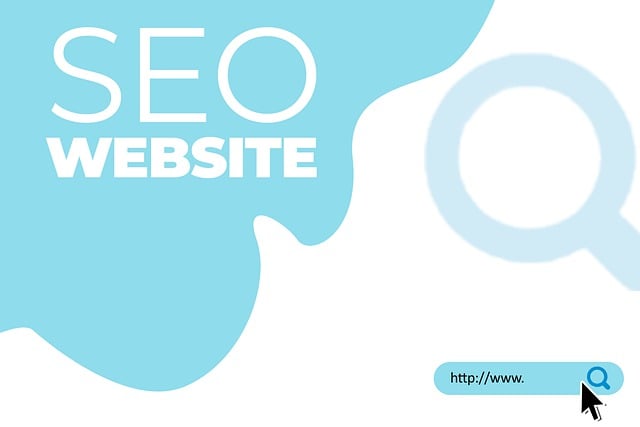On-Page SEO is a critical strategy for boosting website visibility and organic traffic by optimizing individual pages for search engines. Key elements include title tags, meta descriptions, header tags, content quality, keyword usage, internal linking, and mobile responsiveness. Effective on-page optimization signals relevance to search engines, enhances user experience, drives traffic, and supports long-term SEO growth strategies. Keyword research guides content creation, while crafting compelling content attracts readers and improves rankings. Meta tags offer insights about page content, and prioritizing user experience (UX) through intuitive design boosts engagement metrics. Regular audits using tools like Google Search Console identify areas for improvement, ensuring your website remains optimized and ahead of algorithm updates.
In the dynamic landscape of digital marketing, on-page SEO optimization stands as a cornerstone for boosting online visibility. This comprehensive guide delves into effective strategies to enhance your website’s performance. From understanding the fundamentals of on-page SEO to crafting compelling content, leveraging meta tags, and prioritizing user experience, these tactics are vital SEO growth strategies. By integrating keyword research and regular audits, you can achieve sustained success in today’s competitive digital arena.
Understanding On-Page SEO: The Cornerstone of Digital Visibility

On-Page SEO is a fundamental strategy that forms the very cornerstone of any digital visibility and marketing efforts. It involves optimizing individual web pages to rank higher in search engine results, thereby driving organic traffic to your website. By implementing effective on-page optimization techniques, businesses can significantly enhance their online presence and attract target audiences. This process ensures that each page is aligned with both user intent and search engine algorithms, fostering a seamless experience for visitors and boosting SEO growth strategies.
Key elements of on-page SEO include optimizing title tags, meta descriptions, header tags, content quality, keyword usage, and internal linking structures. These factors play a pivotal role in helping search engines understand the context and relevance of your web pages, thereby improving their visibility and click-through rates. Effective on-page optimization is crucial for achieving long-term success in the competitive digital landscape, where staying visible and relevant to your audience is paramount.
Key Elements of a Comprehensive On-Page Optimization Strategy

A comprehensive on-page optimization strategy is a cornerstone for successful SEO growth strategies. It involves meticulously crafting and structuring your website’s content, metadata, and overall user experience to maximize search engine visibility and user engagement. The key elements of such a strategy include optimizing title tags and meta descriptions, ensuring keyword-rich and high-quality content, improving page load speeds, enhancing internal linking, and making pages mobile-friendly. These aspects work synergistically to signal to search engines the relevance and value of your website’s content, driving organic traffic and boosting rankings over time.
Additionally, on-page optimization entails leveraging header tags, image alt text, and schema markup to provide contextual clues and structured data to search engine crawlers. This meticulous approach not only helps search engines understand your pages better but also enhances their ability to index and rank your content accurately. By consistently implementing these SEO growth strategies, businesses can significantly improve their online visibility, attract target audiences, and ultimately drive conversions and revenue.
Keyword Research and Its Role in Content Creation

Keyword research is a cornerstone of successful on-page SEO optimization and content creation. It involves identifying search terms that potential customers use when looking for products or services related to your business. By understanding these keywords, you can create content that resonates with your target audience and aligns perfectly with their search intent. This strategic approach ensures that your website ranks higher in search engine results, driving organic traffic and enhancing your SEO growth strategies.
Effective keyword research informs the topics, titles, headings, and body text of your web pages, ensuring each piece of content is optimized for maximum impact. It also helps you assess the competition for different keywords, allowing you to focus on terms that offer a reasonable balance between search volume and competitiveness. As a result, you can create high-quality, keyword-rich content that not only satisfies user queries but also boosts your website’s visibility and authority in the eyes of search engines.
Crafting Compelling Content That Engages and Optimizes

Crafting compelling content is a cornerstone of effective on-page SEO optimization. It involves understanding your target audience, researching relevant keywords, and creating high-quality, engaging material that naturally incorporates these keywords. By combining strong writing skills with strategic keyword placement, you can enhance search engine visibility while delivering value to readers. Compelling content not only attracts visitors but also encourages them to explore more of your site, thereby reducing bounce rates and increasing time spent on page.
When implementing SEO growth strategies, focus on creating diverse content formats—from blog posts and articles to infographics and videos—to cater to different user preferences and search behaviors. Consistently producing valuable content demonstrates expertise in your niche, fostering trust with your audience and positioning your site as a reliable resource. This, in turn, can lead to improved rankings over time as search engines reward sites that consistently deliver relevant and engaging content.
Leveraging Meta Tags for Improved Search Engine Understanding

Meta tags serve as a powerful tool in your on-page SEO optimization toolkit, enabling search engines to grasp the essence of your web pages. These tags provide critical information about the content, structure, and relevance of your page, helping search engine algorithms index and rank it accurately. By leveraging meta tags effectively, you can enhance the visibility and click-through rates of your website, driving significant SEO growth strategies.
For instance, the title tag is a crucial meta element that should include relevant keywords and reflect the page’s content. Similarly, the meta description offers a concise summary, enticing users to click while providing search engines with context for better understanding. Correctly utilized meta tags can significantly impact your site’s performance in organic search results, attracting more visitors and boosting online presence.
Enhancing User Experience: A Satisfied Audience is a Happy Search Engine

In today’s digital era, search engines prioritize user experiences, recognizing that a satisfied audience is a happy search engine. This means that optimizing your website for both users and search algorithms goes hand in hand. When visitors land on your pages, they expect to find relevant, high-quality content delivered in a seamless, intuitive manner. Implementing SEO growth strategies that enhance user experience (UX) can lead to improved engagement metrics, longer session durations, and reduced bounce rates—all factors that signal to search engines your site is valuable and trustworthy.
By focusing on UX, you create an environment where visitors are more likely to convert into customers or subscribers. A well-designed website with easy navigation, fast loading times, mobile responsiveness, and engaging content encourages users to explore further, increasing the chances of them taking desired actions. This positive user behavior not only boosts your site’s authority but also provides essential signals to search engines, helping your pages rank higher in organic results over time.
Regular Audits and Updates for Sustained SEO Growth

Regular audits are a cornerstone of any effective on-page SEO optimization plan. By continuously assessing your website’s performance, you can identify areas for improvement and stay ahead of algorithm updates. These audits should cover keyword rankings, organic traffic, backlink profiles, and user experience metrics. Using tools like Google Search Console, Ahrefs, or SEMrush, professionals can pinpoint issues such as broken links, duplicate content, or low-quality backlinks that hinder SEO growth strategies. Addressing these problems promptly ensures your website remains optimized for search engines.
Updates are equally vital to sustained SEO growth. As search algorithms evolve, so do user preferences and search trends. Regularly updating your content to reflect the latest industry developments, incorporate relevant keywords naturally, and enhance user engagement can significantly boost your search engine rankings. This dynamic approach ensures that your website remains a valuable resource for your target audience and aligns with the ever-changing landscape of digital marketing.
